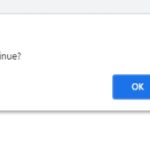You’re working on a new website, and you need to add a new feature. Your web developer has said that it will take one week to finish the work. One week! That’s like an eternity in today’s constantly evolving world of technology. You want your idea out there as soon as possible but still want it done right, so what are you going to do? In this blog post, I will introduce some tips and tricks that will help you code faster than ever before!

Table of Contents
What Does Faster Mean?
There are different levels of “fast.” Do you want a slow-and-steady approach, or do you need the code done yesterday? It’s important to come up with your own definition. Fast can be defined as getting things done like now (now), today, this minute, next few hours/days. Or it could mean spending less time on correcting bugs and reviewing codes–but then deadlines will usually take into account months rather than days since that is more realistic for larger projects.
In order to be a good developer, it is important to learn how “fast” can change depending on what you’re doing. For example, some tasks require more attention and patience than others; often times typing quickly will make errors in your coding that are very difficult if not impossible for someone else to detect upon later examination of the code.
On one hand fast might help you with complex jobs because time constraints force carefulness and precision when working through problems or puzzles whereas long periods without pressure may cause writers block or other mental blocks which slow down progress considerably until they’ve been resolved by breaking them up into smaller parts (a skill highly valued in writing). On the other hand though being too hasty could lead developers into making mistakes while programming that are very difficult if not impossible for someone else to detect upon later examination of the code.
Tips and Tricks to Code Faster
So how can developers work towards coding faster?
Follow Rules
Follow all the rules of good coding: identify your variables, keep track of what’s going on in each part of the code by naming things appropriately and commenting where necessary. Great coders don’t just know how to write programs – they also take pride in their work, ensuring that it is well structured and easy for others to understand.
Rinse and repeat until you’ve reached a level where performance isn’t an issue anymore. It’ll be a number one priority once you start feeling like there are limitations with regards to speed (e.g., when writing debuggers).
While there’s no substitute for hard work when it comes to mastering anything, following some general rules like those mentioned above might help you find yourself saving more time throughout each day so that you may focus on what really matters: creating great code!
Practice, practice, and more practice
You’ll only ever get faster at something if you do it a lot – so don’t be afraid to spend hours on end tackling the same task over and over again! The goal is not to learn how to code in one day but rather to continually improve your skills until they’re as sharp as possible. Remember that this skill takes time; just like athletes need exercise or musicians need training, coders need coding exercises. It’s all about pushing yourself through those dry spells where it feels like nothing is happening and all you’re doing is banging your head against a wall.
Tips with regards to efficiency
Keep things simple! What’s easier said that done though? But like everything in programming it boils down to not over complicating what needs only be a few lines of code and always looking at the problem from different angles until you find something obvious but may have been overlooked initially.
Don’t get caught up on syntax errors right away, often there’s nothing wrong with your code but you’ll be able to spot it faster if you come back later after having given your brain some time “to rest” (or go take care of other tasks) .
Avoid copy pasting blocks of code! if there are common segments then write them once and then pasting them where needed.
Learn about code optimization techniques, such as memorization or caching to avoid computing repetitive tasks more than once.
Tips with regards to mental efficiency
- Avoid procrastination at all costs! This is very important and shouldn’t need any explanation as we’ve all been guilty of it at one point or another.
- Break large tasks into smaller, more manageable pieces and take time to give yourself short breaks in between so that you can return with renewed energy.
- Keep your workspace tidy. When things are scattered around it is very easy for distractions to get the best of us.
If you find yourself feeling unfocused then try a few deep breaths – this should help clear your head and also make you feel calmer which will allow focus come back easier!
Tips on reducing eye & wrist strain
Take regular breaks from looking at computer screens by staring off into the distance for about 30 seconds or trying factoring out repetitive shapes from what’s visible on screen while refocusing attention onto them
If your wrists are feeling sore after a long day of typing, try using an ergonomic keyboard or mouse that will put less pressure on them and taking breaks from typing by doing something else such as stretching or talking to coworkers. Resting their hands on their lap during these rests is also beneficial because it helps promote circulation in the hands/fingers which can help prevent carpal tunnel syndrome (CTS).

